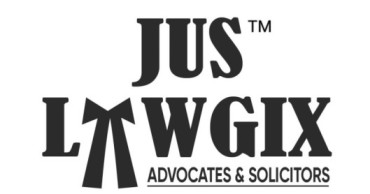Bail, Trial & Beyond: A Narcotics Lawyer’s Role in Your Defense
Your Lifeline Through the Complexities of Drug-Related Legal Battles
Facing a narcotics charge under laws like the NDPS Act (Narcotic Drugs and Psychotropic Substances Act) in India can be a life-altering experience. These charges carry serious consequences — from long-term imprisonment to heavy fines — and are often surrounded by stigma and fear. Whether you're accused of possession, trafficking, or consumption, having a narcotics lawyer by your side is not just helpful — it’s essential.
Let’s take a closer look at how a narcotics lawyer plays a crucial role throughout your legal journey — from bail, trial, and beyond.
1. The Fight for Bail: Your First Line of Relief
Securing bail in a narcotics case is one of the most challenging and sensitive stages, especially in serious offenses involving commercial quantities. A narcotics lawyer knows the nuances of the law and uses legal precedents, case facts, and constitutional rights to argue for your release.
What your lawyer does during the bail phase:
- Drafts and files a strong bail application
- Presents arguments before the court to show you’re not a flight risk
- Highlights procedural lapses (e.g., illegal search or seizure)
- Ensures compliance with conditions for anticipatory or regular bail
2. Building a Strong Defense Strategy for Trial
Once bail is secured, the focus shifts to preparing for trial. This is where experience and legal expertise become critical. A skilled narcotics lawyer scrutinizes every detail of the case to build a strategy that protects your rights and exposes flaws in the prosecution’s argument.
Key aspects of trial preparation include:
- Examining the legality of arrest and search procedures
- Questioning the admissibility and chain of custody of the seized substances
- Identifying false implications or planted evidence
- Preparing witnesses and expert testimonies
- Cross-examining prosecution witnesses effectively
3. Plea Bargaining or Negotiation (When Applicable)
In some cases, especially where the quantity is small and the offense is non-violent, plea bargaining may be a viable option. Your narcotics lawyer can advise whether it's a wise strategy and help negotiate a reduced sentence or penalty.
Your lawyer helps with:
- Assessing if plea bargaining is legally and strategically suitable
- Negotiating with prosecutors
- Ensuring the deal protects your long-term interests
4. Post-Trial Support and Appeals
The lawyer’s role doesn’t end with the verdict. If the judgment is unfavorable, a narcotics lawyer can guide you through the process of appealing to a higher court.
Post-trial assistance includes:
- Filing appeals or revision petitions
- Challenging unfair or harsh sentencing
- Seeking parole or suspension of sentence
- Providing legal support for rehabilitation or record clearance (if applicable)
5. Safeguarding Your Rights at Every Step
Narcotics cases often involve intense scrutiny and pressure. A good lawyer ensures that your constitutional rights are never violated — whether during investigation, interrogation, or trial.
They ensure:
- Protection from unlawful detention
- Right to a fair and speedy trial
- No self-incrimination
- Proper legal representation
Final Thoughts
When facing drug-related charges, the stakes are incredibly high. The legal system is complex, and the consequences of a conviction can follow you for a lifetime. A knowledgeable and experienced narcotics lawyer is your best defense — from the moment of arrest to the final verdict and beyond.
If you or someone you know is facing a narcotics charge, don’t delay. Early legal intervention can make a major difference.
Need Legal Help in a Narcotics Case?
Contact an experienced Narcotics Lawyer today for bail, trial support, and a strong legal defense.

